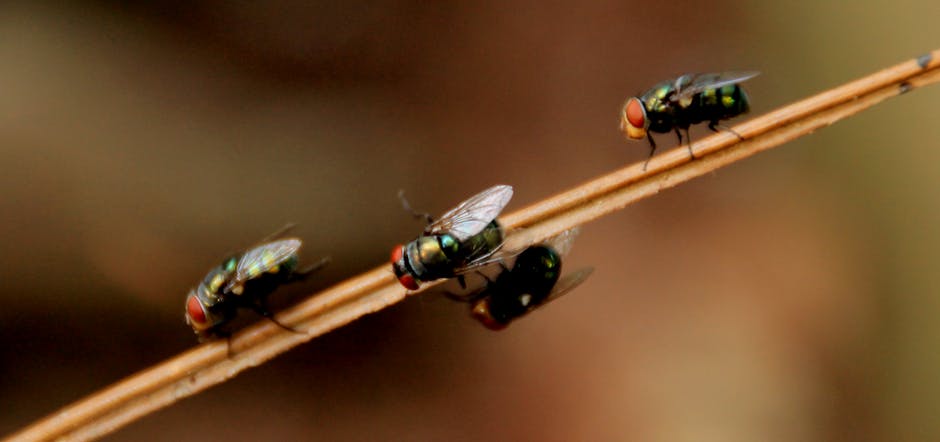Natural Pest Control: Effective Ant Repellent Solutions
Ants can be a real nuisance when they invade our homes, turning our peaceful spaces into tiny race tracks. But before you reach for those harsh chemical sprays, consider a natural approach. 🌿 In this blog post, we’ll explore effective ant repellent solutions that are safe for your family, pets, and the environment. Let’s dive in!
Table of Contents
1. Why Choose Natural Repellents?
2. Essential Oils: Nature’s Fragrant Warriors
3. DIY Ant Repellent Sprays
4. Kitchen Remedies You Already Have 🍋
5. Keeping Ants Away: Preventive Measures
6. Conclusion
7. FAQ
Why Choose Natural Repellents?
Choosing natural ant repellent solutions isn’t just about being eco-friendly—it’s about creating a safe environment. Traditional pesticides can leave toxic residues that pose risks to children and pets. Natural repellents, on the other hand, are gentle yet effective, ensuring peace of mind while keeping your home ant-free. Plus, they often smell amazing! 🌸
Essential Oils: Nature’s Fragrant Warriors
Essential oils are a potent weapon against ants. Their strong scents can deter ants and disrupt their scent trails, making it harder for them to navigate.
Here are some popular essential oils that work wonders:
Peppermint Oil: Its refreshing scent is a major turnoff for ants. Mix 10 drops with water in a spray bottle and target entry points.
Tea Tree Oil: Known for its antimicrobial properties, tea tree oil can also repel ants. Combine 10 drops with water and spray around your home.
Lemon Oil: Ants dislike citrus scents, which makes lemon oil a great choice. Mix 10 drops with water and spray liberally.
DIY Ant Repellent Sprays
Creating your own ant repellent spray is both cost-effective and straightforward. Here’s a simple recipe to get you started:
Ingredients:
• 1 cup of water
• 1 cup of vinegar
• 20 drops of your favorite essential oil (peppermint, tea tree, or lemon)
Instructions:
1. Combine all ingredients in a spray bottle.
2. Shake well to mix.
3. Spray around windows, doors, and any ant-prone areas.
This spray not only keeps ants at bay but also leaves your home smelling fresh and clean! ✨
Kitchen Remedies You Already Have 🍋
Sometimes, the best solutions are right under our noses—or in our kitchen cabinets! Here are a few kitchen staples that can help repel ants:
Vinegar: Ants despise vinegar. Wiping surfaces with a vinegar solution can disrupt their trails.
Cinnamon: Sprinkle cinnamon powder in areas where ants are seen. The strong smell is a natural deterrent.
Lemon Juice: Squeeze lemon juice along entry points. The acidity can mask ant trails and keep them away.
Keeping Ants Away: Preventive Measures
Prevention is key! Here are some tips to keep ants from becoming a problem in the first place:
• Seal Entry Points: Ants can enter through tiny cracks. Seal gaps around windows, doors, and pipes.
• Keep It Clean: Regularly clean floors and counters to remove crumbs and spills that attract ants.
• Store Food Properly: Keep food in airtight containers to prevent ants from finding a meal.
Conclusion
Natural pest control methods offer a safe and effective way to manage ant invasions without resorting to harsh chemicals. Whether you opt for fragrant essential oils or simple kitchen remedies, these solutions can help maintain a harmonious, ant-free home. 🏡 Embrace these natural approaches and enjoy the peace of mind they bring!
FAQ
Q1: Do natural ant repellents work as well as chemical ones?
A1: Yes, when used correctly, natural repellents can be just as effective as chemical ones, and they have the added benefit of being safe for your family and pets.
Q2: How often should I apply natural ant repellents?
A2: It’s best to reapply natural repellents every few days or after cleaning the treated areas to maintain their effectiveness.
Q3: Can I use essential oils directly on surfaces?
A3: Essential oils should always be diluted with water or a carrier oil before application to avoid potential staining or damage to surfaces.
Q4: Are there any natural ant repellents that are pet-friendly?
A4: Most natural repellents, like vinegar, lemon juice, and certain essential oils, are safe around pets. However, always ensure your pets don’t ingest these substances directly.
Q5: What if my ant problem persists despite using natural methods?
A5: If natural methods are not resolving the issue, consider consulting a professional pest control service for a more comprehensive solution.





